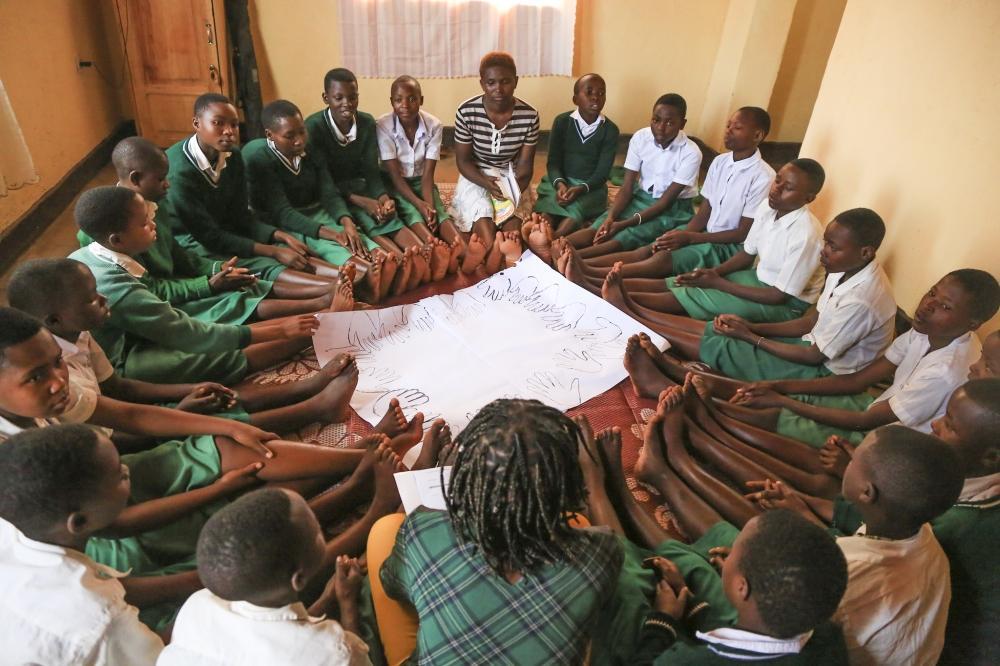Africa-Press – Rwanda. The Parliament on August 4 passed a healthcare services bill, which replaces three outdated and fragmented health laws, regulates digital health services and assisted reproductive technologies, such as in-vitro fertilization (IVF) and surrogacy.
The law also revised the age of consent for accessing health services to 15 years and it strengthens ethics, accountability, and patient rights.
The legislation also formally authorizes the use of assisted reproductive technologies, including the storage of gametes and embryos (fertilised and non-fertilised egg freezing), for couples or individuals facing infertility risks or those who want to delay their pregnancy.
The law, however, has not yet taken effect as it awaits the presidential assent and subsequent publication in the Official Gazette.
The New Times spoke to members of the society about the new bill to hear their views about various provisions of the legislation, potential benefits and possible concerns that may arise when it takes effect.
Gloriose Muhoza, 32, Kigali resident and mother of three
Allowing 15-year-olds to use contraceptives is a timely decision. We have seen rising numbers of teenage pregnancies in recent years, which disrupt education and can lead to bigger problems like family conflict, street children, and long-term life setbacks for the girls involved. This law could help change that.
Still, I am worried about the side effects. Some contraceptives are known to cause complications, which is alarming for young girls who have not had children yet. The implementation of this law should be handled with great care, with strict guidelines and monitoring to ensure their children’s health and future fertility are not compromised.
As for surrogacy, I believe it offers a meaningful solution for couples who are unable to conceive. But pregnancy and childbirth are very delicate matters. As a mother, I know the risks involved. A woman can deliver a healthy child but lose her own life in the process.
A child may be born with a disability, which could bring unexpected emotional and financial challenges. There are also risks of miscarriage or other complications. That’s why I believe the law must include clear, detailed provisions, not only to protect the intended parents but also to safeguard the rights and wellbeing of the surrogate mother.
Benjamin Ndayambaje, father of two, Gasabo District
I would not personally go for egg freezing or anything similar. I have too many concerns, especially around the safety and handling of sperm or embryos. If babies can be switched or stolen in hospitals, what about stored eggs? They could be swapped, misplaced, or damaged.
Surrogacy is a good option for childless couples, but the law must look into every possible scenario. What happens if the baby is born with a disability and the intended parents walk away? Or what if the surrogate mother faces health complications? These are real risks.
For the contraceptives for 15-year-olds, I do not support it. That age is too young to make such decisions. It might even give abusers a legal excuse to involve children in sex, just because they are using protection. We should be teaching abstinence and discipline instead.
Jacqueline Uwase Mutoni, 29, mother of two, Ruhango District
I believe the decision to allow 15-year-olds access to contraceptives was made for the right reasons. Teenage pregnancy is not just a social issue, it puts young girls at risk, physically, mentally, and emotionally.
Even for older women, unplanned pregnancy often requires significant social and financial adjustments to support the baby without destabilizing the family. Now imagine what a 15-year-old girl goes through physically, mentally, and socially, when she gets pregnant.
Yes, people may say it could encourage engagement in early sex. But let us be honest, the ones who would have sex without protection are the same ones who would do it with protection. The law is not creating a new problem; it is trying to reduce the damage.
The work does not stop here. Parents, teachers, and communities still need to talk to children, guide them, and encourage abstinence. Let us not forget that contraceptives do not prevent sexually transmitted diseases. This bill can work, but only if society plays its part.
Henriette Iradukunda, 25, security guard
The way I see it, when someone starts using contraceptives while they are still young, they may be affected by side effects of the drugs or other birth control methods.
As for surrogacy, I feel that often the child ends up inheriting the character traits of the surrogate mother instead of those of the intended parents, which can create a disconnect between the child and the real parents.
Some volunteers help people struggling with infertility by carrying a child for them, and even though the government may not allow the exchange of money in such arrangements, I believe the parents should still give some form of appreciation or compensation to the surrogate as a token of gratitude, because that’s a great service to receive from anyone.
Janvier Hakizimana, 39, taxi driver in Kigali
Given that surrogacy is still unfamiliar in Rwandan culture, it may take time for society to fully embrace the idea that a child can be carried in another woman’s womb yet have no biological link to the surrogate and be entirely connected to the intended parents.
When it comes to sperm donation, there are concerns about potential risks, particularly the emotional and relational impact it could have on families since the child would be biologically tied only to the mother and an anonymous donor,. This could lead to misunderstandings or confusion
On a more positive note, egg freezing presents a promising option for individuals at risk of infertility, offering them a chance to preserve their ability to have children in the future.
Theoneste Ndikumana, 23, motorcyclist from Nyarugenge District
Giving contraceptives to 15-year-old girls might only increase teenage sex. We should be investing more in youth education and stricter laws to prevent early pregnancies.
Surrogacy sounds like a good solution for couples who cannot have children, but as Rwandans, we still have questions. For example, what if the surrogate grows attached to the child and wants to stay involved in their life? How does the law address that?
Ritah Usanase, pharmacist based in Kigali
Given the high rate of unplanned pregnancies among underage children and youth, allowing access to contraceptives for teenage girls seems like one of the most practical ways to help prevent teenage pregnancies. While it is true that this approach may have its downsides, it is also true that most solutions come with both benefits and challenges.
For More News And Analysis About Rwanda Follow Africa-Press






